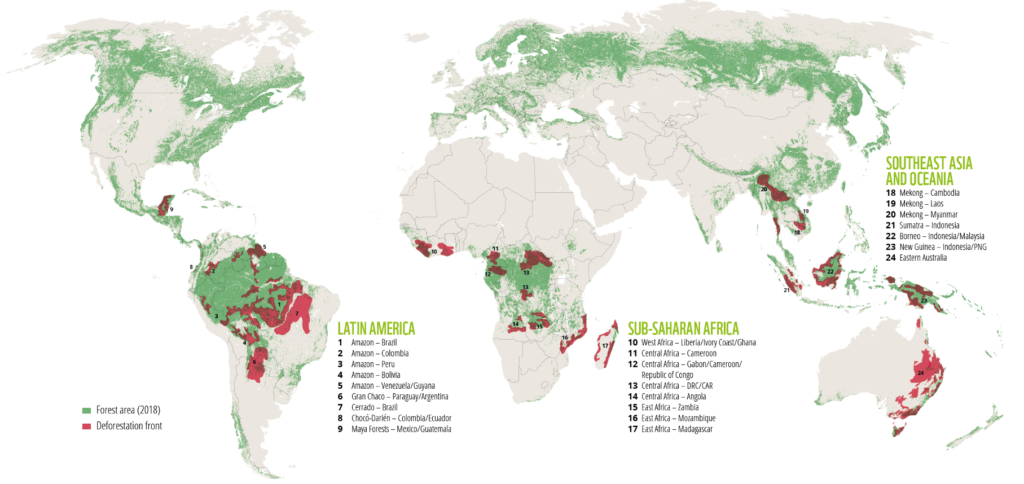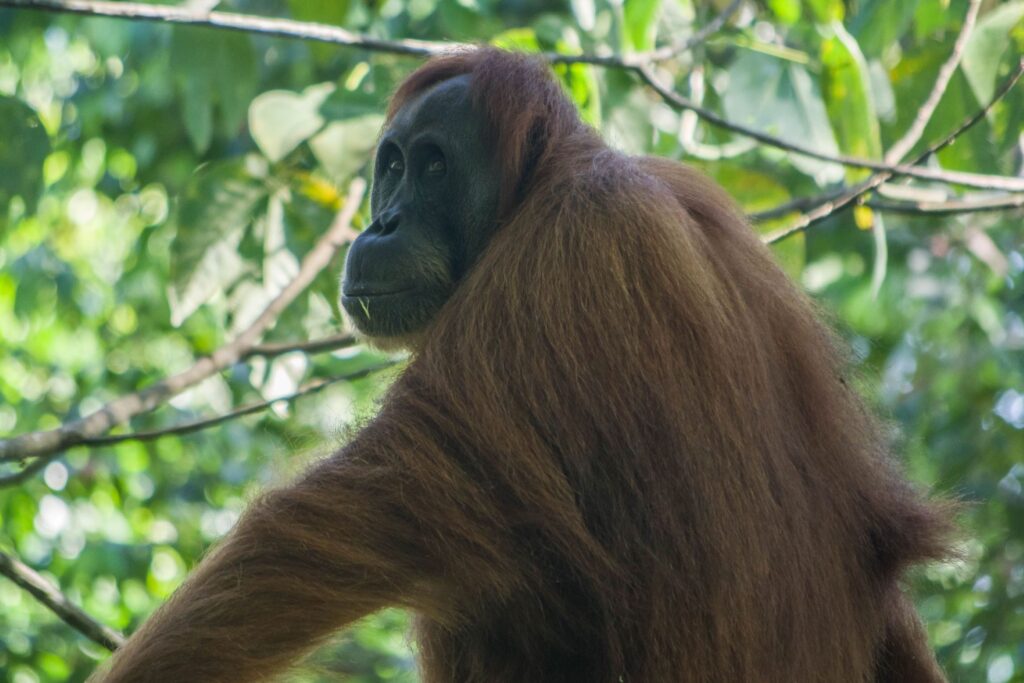We all know that forests are vital to our lives, providing the air we breathe and housing over half of the world’s land-based wildlife. It is never enough to emphasize the issue of deforestation which threatens both human health and our planet by increasing carbon emissions, contributing to pollution, and driving climate change. In this article, we will focus on two major contributors: palm oil production and illegal logging.

According to a deforestation report from the World Wildlife Fund, we lost over 160,000 square miles between 2004 and 2017.
Agriculture is the leading driver of global deforestation, fueled by increased food consumption. Palm oil plantations, in particular, have a significant impact. Palm oil is primarily used for cooking in developing countries and is also found in food products, detergents, cosmetics, and, biofuel.
While plantations expand across Asia, Africa, and Latin America, providing job opportunities for local communities who, drawn by the prospect of decent wages, do not realize the long-term consequences, this growth is causing widespread destruction of critical habitat for many endangered species including orangutans, rhinos, elephants and tigers. Moreover, burning forests to make room for the crop is also a major source of greenhouse gas emissions and intensive cultivation methods result in soil pollution, erosion, and water contamination.
With better management practices, the palm oil industry can thrive without harming forests. By enforcing strict production criteria, oil palm plantations can operate sustainably without encroaching on rainforests.
WWF is actively involved in this effort by:
- Promoting sustainable palm oil production through the Roundtable on Sustainable Palm Oil (RSPO), which includes palm oil producers, buyers, and environmental groups
- Encouraging companies to use certified sustainable palm oil in their products
- Working to remove incentives that drive forest destruction for palm oil production
You can contribute by donating at https://www.worldwildlife.org/.
In Borneo, forests are disappearing rapidly, with palm oil plantations and illegal logging causing the loss of half the island’s forest cover in the past 50 years.
Due to poverty and limited access to healthcare, many residents have turned to illegal logging.
Founded in 2006, Health in Harmony (HIH) is a rainforest conservation organization that supports the health of people, ecosystems, and the planet by collaborating with rainforest communities on solutions in healthcare, livelihoods, and education.

Although Indigenous Peoples and Local Communities represent only 6% of the global population, they protect over 80% of Earth’s biodiversity. HIH believes these communities are the experts the world must listen to and work with to address the climate crisis.
In 2017, the company launched a chainsaw buyback program, offering farmers money and support to establish alternative livelihoods in exchange for turning in their chainsaws. HIH’s healthcare clinic allows residents to pay in whatever way they can, whether with cash, seedlings, manure, rice husks, or other available resources and the medical centre provides also discounts to villages that demonstrate a reduction in illegal logging.
A 2020 Stanford University study, published in the Proceedings of the National Academy of Sciences, detailed the ten-year impact at a proof-of-concept site in West Kalimantan, Indonesia. Encouraged by the positive outcomes, HIH developed a plan to scale up their efforts, expanding to additional sites in West Kalimantan (Bukit Baka Bukit Raya), the Manombo Forest in southern Madagascar, and the Xingu River Basin in the Amazon Rainforest, Brazil.
Here are some interesting numbers:
8.7 million hectares of rainforest protected
88,441,929 pounds of carbon dioxide protected in Indonesia
10,322 patient visits conducted across all sites
697 under-5 infants received healthcare in Borneo
3,000+ orangutans protected in Borneo
Increased access to family planning and birth control at all program sites
42,000+ old-growth trees protected in Borneo through Chainsaw Buyback
1,690 community members received benefits from our Conservation Stimulus package in Indonesia
10,196 people in 28 villages supported through community outreach programs in Borneo
87,295+ signatures on our petition to U.S. Congress on future pandemic prevention
In 2024, HIH aims to protect 11 million hectares of rainforest across Indonesia, Madagascar, and Brazil, with Indigenous Peoples and local communities leading the efforts. This includes an additional 1.65 million hectares to be safeguarded this year. The organization will also support 335,000 people in these regions as they work to protect rainforests globally.
You can contribute by donating at https://healthinharmony.org/
